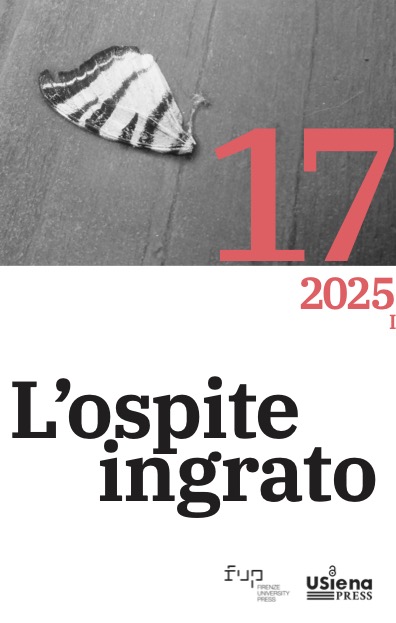Published 2025-06-25
Keywords
- Carlo Cassola,
- fiction on the Resistenza,
- Italian novel of the 1950s,
- intellectual character,
- popular figure
How to Cite
Copyright (c) 2025 Michela Rossi Sebastiano

This work is licensed under a Creative Commons Attribution 4.0 International License.
Abstract
The essay examines Cassola’s fiction on the Italian Resistenza, focusing on the short story Baba (1946), the novel Fausto e Anna (1952), and the short novel I vecchi compagni (1953). In these works, Cassola constructs a narrative opposition between the bourgeois intellectual (Fausto) and the communist worker (Baba). Within a narrative space that reconfigures relational dynamics by centering the communist character, the author portrays the failure of intellectual leadership. The essay further explores how this opposition shapes narrative construction – affecting plot structure, character development, and the role of the narrator – as well as its influence on defining Cassola’s distinctive form of populism.

